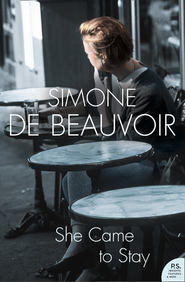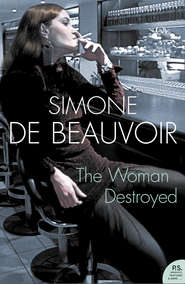По всем вопросам обращайтесь на: info@litportal.ru
(©) 2003-2024.
✖
The Mandarins
Автор
Год написания книги
2018
Настройки чтения
Размер шрифта
Высота строк
Поля
‘Listen,’ Robert said in a conciliatory tone of voice, ‘one book more or less on earth isn’t as important as all that. And the political situation at present is extremely stimulating; I hope you realize that. This is the first time the left has ever held its fate in its own hands, the first chance to try to organize a group independent of the Communists without running the risk of serving the cause of the right. I’m not going to let this opportunity slip by! I’ve been waiting for it all my life.’
‘For my part, I think your books are more important,’ I said. ‘They bring people something unique and different. But when it comes to politics, you’re not the only one about who can become involved in it.’
‘But I’m the only one who can steer things in the direction I want them to take,’ Robert said cheerfully. ‘You of all people ought to understand me. The vigilance committees and the Resistance were useful, all right, but they were negative things. Today, it’s a question of building, and that’s much more interesting.’
‘I understand you very well, but your writing interests me more.’
‘Haven’t we always agreed that one doesn’t write just for the sake of writing?’ Robert said. ‘At certain times, other forms of action become more urgent.’
‘Not for you,’ I replied. ‘First and foremost, you’re a writer.’
‘You know that’s not true,’ Robert said reproachfully. ‘For me, the revolution comes first.’
‘Yes,’ I said, ‘but you can best serve the revolution by writing your books.’
Robert shook his head. ‘That depends on the circumstances. We’re at a critical moment of history just now; first we have to win the political battle.’
‘And what happens if we don’t win it?’ I asked. ‘Do you really believe there’s a chance of a new war?’
‘I don’t believe a new war is going to start tomorrow,’ Robert replied. ‘But what has to be avoided at all cost is the creation of a situation in the world which might easily lead to war. If that happens, then we’ll sooner or later come to blows again. And we also have to prevent this victory from being exploited by capitalism.’ He shrugged his shoulders. ‘There are a lot of things that have to be prevented before one can afford to amuse oneself writing books that no one might ever read.’
I stopped dead in the middle of the street. ‘What? Do you believe that too? That people will lose interest in literature?’
‘Believe me, they’ll have a lot of other things to keep themselves busy with,’ Robert said in a voice that again seemed to me too reassuring.
‘The prospect doesn’t seem to bother you at all,’ I said indignantly. ‘But a world without literature and art would be horribly sad.’
‘In any event, there are millions of men at this very moment to whom literature means absolutely nothing,’ Robert replied.
‘Yes, but you always expected that to change.’
‘I still expect it to. What makes you think I don’t?’ Robert asked. ‘But that’s precisely it,’ he went on without waiting for me to answer. ‘If the world decides to change, there’s no doubt we’ll go through a period in which literature will be almost completely out of the picture.’
We went into the study and I sat down on the arm of one of the leather chairs. Yes, I had certainly drunk too much punch; the walls were spinning crazily. I looked at the table on which Robert had been writing night and day for twenty years. He was sixty now, and if this period of political upheaval dragged on for very long he ran the risk of never seeing the end of it. He couldn’t possibly be as indifferent to such a prospect as he tried to appear.
‘Let’s look into this thing a little,’ I said. ‘You believe your major works are still ahead of you and just five minutes ago you said you were going to begin a new book. That implies that you believe there are people around who want to read what you’ve written …’
‘Oh, I suppose that’s more than likely,’ Robert said. ‘But the opposite view can’t be rejected out of hand.’ He sat down next to me in the chair. ‘It’s not really as horrible as you might think,’ he added cheerfully. ‘Literature is created for men and not men for literature.’
‘It would be sad for you,’ I said. ‘You wouldn’t be happy if you stopped writing.’
‘I don’t know,’ Robert replied with a grin. ‘I have no imagination.’
But he has. I remember how worried he was the night he said to me, ‘My major works are still ahead of me!’ He’s determined that those works shall have weight, permanence. It’s useless for him to protest; above all else he’s a writer. At first perhaps he had dreamed only of serving the revolution; literature was just a means. But it soon became an end; he loved it for itself and all his books prove it, especially those memoirs he doesn’t want published. He wrote them purely for the pleasure of writing. No, the truth is that he simply doesn’t want to talk about himself, and that reluctance isn’t a good sign.
‘As for me,’ I said, ‘I have plenty of imagination.’
The walls were spinning, but I was thinking very lucidly, much more lucidly than I do in the morning before breakfast. In the morning before eating, you’re on the defensive, you manage somehow not to know things you really do know. Suddenly I saw everything with perfect clarity. The war was ending and a new history in which nothing was guaranteed was beginning. And Robert’s future wasn’t guaranteed; it was perfectly possible for him to stop writing and even for all his published works to be swallowed up into nothingness.
‘What do you really think?’ I asked. ‘Do you think things will turn out good or bad?’
Robert began to laugh. ‘I’m not a prophet! But one thing is certain,’ he added. ‘We’re holding a lot of trumps.’
‘But what are the chances of winning?’
‘Shall I look into my crystal ball? Or would you like me to read your tea leaves?’
‘You don’t have to make fun of me,’ I said. ‘I have a right to ask a few questions from time to time.’
‘I ask myself a few, too, you know,’ Robert said.
Yes, he does ask himself questions, and graver ones than I do. Personally, I rarely act on my beliefs; that’s why I so easily become unhappy. I realize I’m wrong being that way, but with Robert it costs so little to be wrong.
‘But you only ask yourself those questions you’re able to answer,’ I said.
He laughed again. ‘Preferably, yes. The others don’t serve much purpose.’
‘That’s no reason not to ask them,’ I said. My voice was rising, but I wasn’t angry with Robert. I was angry with myself, with my blindness during these past weeks. ‘I’d still like to have some idea of what’s going to happen to us,’ I persisted.
‘Don’t you think it’s rather late?’ Robert asked. ‘We’ve both had a lot of punch to drink, and our minds will be a lot clearer tomorrow morning.’
Tomorrow morning the walls will stop spinning, the furniture and books will be in their proper places, always the same places. And my ideas, too, will fall back into place, and I’ll begin to live again from day to day, without turning my head, looking just so far and no farther into the future. I’ll stop paying attention to that discordant clatter in my heart. I’m tired of that diet. I looked at the cushion by the fireplace on which Diego used to sit. ‘A Nazi victory doesn’t enter into my plans,’ he had said. And then they had killed him.
‘Ideas are always too definite!’ I said. ‘The war is won. There’s a definite idea for you. Well, in my opinion we went to a very peculiar party tonight, with all the dead who weren’t there.’
‘There’s quite a difference between saying that their deaths served some purpose and none at all,’ Robert said.
‘Diego’s served no purpose at all,’ I retorted. ‘And what if it had?’ I added irritably. ‘It’s fine for the living, this system by which everything leads to something else. But the dead stay dead and we’re constantly betraying them; they don’t lead to anything.’
‘We don’t betray them by choice,’ Robert protested.
‘We betray them when we forget them and when we use them,’ I said. ‘Regret has to be useless or else it’s not really regret.’
Robert thought for a moment and then, with a perplexed look on his face, said, ‘I suppose I’ve no great talent for regretting. I don’t bother myself much with questions I can’t answer, things I can’t change.’ He paused a moment and added, ‘I don’t say I’m right about that.’
‘And I don’t say you’re wrong. In any case, the dead are dead and we go on living. All the regretting in the world won’t change that.’
Robert took my hand. ‘Don’t go looking for things to make you remorseful,’ he said. ‘We’ll also die, you know; that brings us very close to them, doesn’t it?’
I withdrew my hand; at that moment I was the enemy of all friendly feelings. I didn’t want to be consoled, not yet.
‘Your damned punch has really gone to my head,’ I said. ‘I’m going to bed.’
‘Yes, go to bed now. And tomorrow we’ll ask each other all the questions you want, even those that serve no purpose,’ Robert said.
‘And you? Aren’t you coming to bed?’
‘No, I think I’ll have a shower and do some work.’







